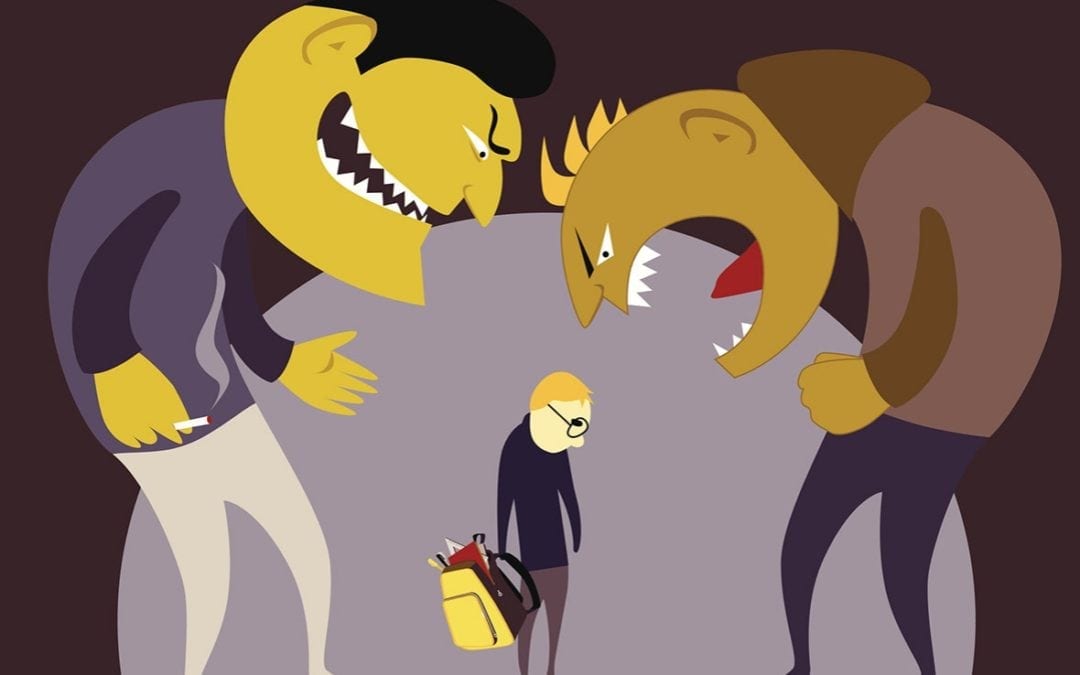The risk of bullied children developing mental health problems is drastic. Recent research has uncovered the shocking statistic that around 40% of children who are bullied have also been the victims of abuse. Although the study has not found an exact reason as to why this happens, it has been suggested that a history of abuse makes some children more susceptible to being bullied. Being aware of the symptoms and raising your children in a positive environment can help protect them from the long-term trauma of bullying, as there are serious consequences to the health of children that are bullied.
The physical effects of bullying on heart health
Bullying can be a frightening experience and the daily onslaught many children face can cause them to become very stressed and agitated. The Adverse Childhood Experiences study demonstrated that the chronic stress of childhood abuse, neglect, and exposure to domestic violence demonstrated that this physiological response to stress shortens lifespans and causes lifelong harm. Newer research shows that bullying can have a similar effect. The body’s physiological response is to release excessive amounts of stress hormones, such as adrenaline. This causes the heart to speed up and beat much faster than usual, which also significantly raises blood pressure. Bullying has been proven to raise the risk of cardiovascular disease and directly affect the long-term health of children.
A weakened immune system
Experiencing feelings of anxiety and panic every day over a prolonged period of time can also cause damage to the immune system; which can make it increasingly difficult to fight off infections and recover from illnesses. Children may even suffer from agonizing inflammatory aches and chronic pains. Pain that keeps doctors perplexed and which modern medicine can’t seem to heal.
The effects of stress
The pain that children perceive is not just a manifestation of their young imagination. Stress can cause all sorts of issues for the body. It can also create problems to our digestive system; causing stomach pain and high levels of stomach acidity. Children that struggle with stammering are also increasingly likely to have this exacerbated by bullying.
The psychological aftermath
Children in the United States that were bullied are nearly five times more likely to be diagnosed with anxiety than if they were abused. Studies have shown that children that are bullied are more likely to grow into adults that suffer from higher rates of anxiety. The risk of developing depression and other mental health problems also increases. The study also recorded self-esteem as the lowest among adults that were bullied when they were young.
Difficulty forming healthy relationships
There is evidence to suggest that people who were bullied as children, find it hard to establish healthy relationships and friendships as adults. Many adults that were bullied when they were younger; suffer from crippling social anxiety, and have trust issues that stem from childhood. Difficulties forming bonds with other children at school sets a precedent for many that they carry into their adult lives.
Dangers of self-harming
Those victimized by their peers are increasingly more likely to self-harm and display other disturbing behaviors; such as putting themselves in dangerous situations that pose a risk to their well-being. Children and adults that experienced bullying, both had a higher risk of committing suicide or using suicide ideation as a way to get through the pain and trauma inflicted upon them. Adults and teenagers of all ages that were bullied, were also more likely to be smokers, use recreational drugs, and drink alcohol excessively.
Even the strongest and most resilient of adults are not immune to the physical effects of bullying. Children are incredibly vulnerable, and it is up to us to ensure they are protected every step of the way through their young lives and into adulthood. To give them the best chance to thrive as healthy adults, take action now to stop them being bullied, and avoid any added trauma to them in later life.
By Writing Jackie
